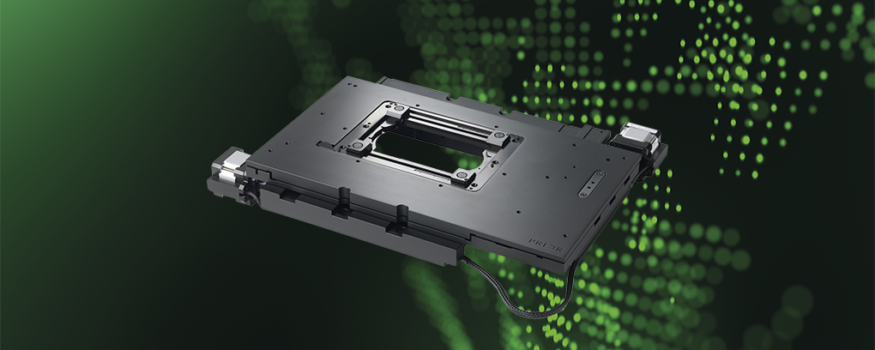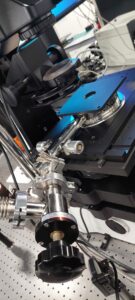Prior’s robust ProScan® H117 stage ensures long-term stability for hyperspatial spectroscopy and ultrafast microscopy applications
Posted in Application notes Jun 16th 2023

| The Institute of Applied Physics at the Technische Universität Dresden is renowned for its groundbreaking research into the physics of light. Key areas of study include how light interacts with matter, the relationship between light and energy, and what one can learn about the properties of emerging classes of nanomaterials by observing light.
Professor Alexey Chernikov leads a team that is using ultrashort laser pulses to study many-particle phenomena in atomically thin, two-dimensional materials including inorganic and hybrid compounds. The group uses a variety of optical techniques from linear and non-linear spectroscopy to time-resolved microscopy. The goal is to develop a fundamental understanding and advanced concepts for the manipulation and control of light emitters on the nanoscale. |
 |
The experiments are carried out in carefully controlled conditions, from ambient to more extreme scenarios involving high-vacuum and cryogenic temperatures down to 5 K (-268 °C). The area of interest in the optical experiments is usually very small – on the order of 1 µm or less. It requires both accurate hyperspatial mapping to study the energy landscape of complex sample structures as well as high stability for time- and spatially-resolved measurements on one spot.
A robust, stable stage is essential to ensure the success of the experiments which require both high stability at one position as well as precise movements, whenever required. It needs to accommodate the heavy load of a microscopy cryostat without sacrificing precision and performance. The Prior ProScan H117 stage meets all their specifications with an average metric accuracy of 0.059 µm and a maximum load of up to 10 kg.
As Professor Chernikov explains:
“We use the ProScan H117 stage in combination with microscopy cryostats and inverted microscopes. Our requirements include a combination of accurate positioning and heavy load plus high stability with respect to any lateral forces.
“The Prior H117 stage perfectly fulfills these distinct requirements to move fast, easily, and reliably under load or, alternatively, fixing a single position for something like 14 hours or even longer.”
You can discover more about Professor Chernikov and his team’s research in a number of published papers employing the H117 stage to ensure stable conditions for accurate measurements:
Dielectric disorder in two-dimensional materials | Nature Nanotechnology
Learn more about the ProScan H117 stage












